Saturday, December 15 2018
This past year we've been highlighting different aspects of our writing and things we've learned along the way, but this month we're sharing some of our writing itself. A Christmas Goose is a Christmas story, but it's also a story of second chances and healing. So, from me to you with wishes for a holiday filled with love, laughter and good cheer.
Christmas Goose - by Skye Taylor
 Jeff was late. Resentment, despair, and anger overcame my limited patience. I couldn’t take the holiday music and festive decorations a moment longer. Not when I was facing the worst Christmas of my life. Jeff was late. Resentment, despair, and anger overcame my limited patience. I couldn’t take the holiday music and festive decorations a moment longer. Not when I was facing the worst Christmas of my life.
I worked my way past a crowd of carolers just coming through the door. Fresh air felt good on my face and in my hair in spite of the dismal gray chill. The sudden quiet, broken only by distant traffic suited my mood. I felt alone and cut off from everything I had once been. All I really wanted was Julie.
Except, I’d said goodbye to Julie.
Not Goodbye, see you tomorrow, but goodbye, and have a nice life.
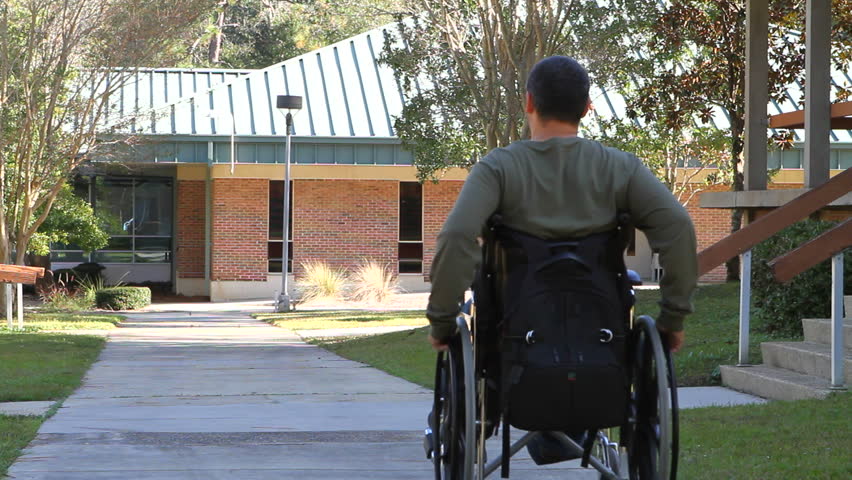 I jerked my chair onto the path we had traveled so many times during rehab. Me helpless in the chair. Julie pushing. I jerked my chair onto the path we had traveled so many times during rehab. Me helpless in the chair. Julie pushing.
Julie had been at my bedside when I finally regained consciousness. I don’t recall what I said to her, but it must have been pretty strange because she’d cracked up. I’d been in a drug-induced fog and hadn’t seen the tears mixed into her laughter.
She’d missed a whole semester of college to be at my side. But it was time to set her free. She didn’t need an anchor for the rest of her life. Julie loved to dance. I didn’t have legs to dance on. She dreamed of traveling to far-away places. I had trouble just making my way to the mailbox. Julie wanted kids. What if I could no longer give her even that? Julie deserved better than me.
Julie disagreed, but she hadn’t seen me struggling in rehab. She hadn’t seen me throw my specially-made prosthesis at the wall in frustrated anger. She hadn’t heard me screaming in pain. Or waking from a nightmare. She’d be better off if she never did.
My chair lurched to a stop when it left the paved path. I cursed and wrestled it forward. I hated my new reality. I’d been a track star in high school, excelling in high jump and hurdles. Now I’d never jump again and just getting out of bed was a hurdle.
Sweating and still cursing, I finally got myself down to the pond. When I’d asked Julie to bring me here three days ago, the sparkle in her eyes had told me she expected me to propose. Instead, I’d told her to take a hike.
All I’d ever considered being when I grew up was a cop. But in our family, military service came first. What kind of run-down police force hires a cripple? I had no idea how I was going to support myself for the next fifty years, never mind a wife and kids.
No reasons left to endure the desert my life had become. Julie had taken my heart with her, along with the sun and laughter and everything that had made the last few months bearable.
 I didn’t see the goose until my wheels crunched into a pile of dead leaves, and made her flinch. She eyed me with alarm and tried to move away, but a broken wing made escape impossible. We gazed at each other in shared misery. Then her attention turned elsewhere. I didn’t see the goose until my wheels crunched into a pile of dead leaves, and made her flinch. She eyed me with alarm and tried to move away, but a broken wing made escape impossible. We gazed at each other in shared misery. Then her attention turned elsewhere.
A gander glided gracefully in and landed between us. They should have flown south months ago, but clearly her injury had kept them grounded. Somewhere I’d read that geese mated for life. The faithful male made soft sounds in his throat while his mate ate the food he’d brought her. Apparently deciding I was no threat, he took a couple running steps and soared back into the air. A few minutes later he returned with another offering.
Did the gander know his mate would probably never fly again? Perhaps instinct told him she wouldn’t, but it hadn’t mattered. She was his mate and if she couldn’t go, then neither would he.
My eyes stung. Julie had shown me the same kind of faithfulness, but I had turned her away. I’d convinced myself it was for her good. I back-handed tears that escaped down my cheeks. I’d been so busy thinking of what I wanted and couldn’t have that I hadn’t listened to anything she said. Hadn’t considered what she wanted that I could still give her.
The gander returned once again. He folded his wings and settled in beside his mate. The two sat peacefully in the chilly December air, content in each other’s company.
I’d been so wrong. Julie and I shared something special. It had survived the crazy tumult of our teenage years. It had weathered the separation of Boot Camp and college. It had been strong enough to bring her rushing to my bedside the moment the Army had deposited me at Walter Reed. Maybe she hadn’t seen the worst of my temper, but she hadn’t flinched at the sight of my stumps.
The love I felt for that smart, funny, generous woman had been the center of my universe for almost half my life. We were meant to be life mates. Just like this gander and his goose.
I wiped my palms on my jeans, then gripped the wheels with determination. Maybe it wasn’t too late to admit what a jerk I’d been and fix what I’d broken.
***
 Jeff pulled up in front of Julie’s parent’s home. I’d picked her up here a thousand times and seen her run eagerly down the stairs to meet me. Now I prayed she’d even agree to see me. After the things I’d told her three days ago, I wouldn’t blame her if she sent her father to the door to send me packing. Jeff pulled up in front of Julie’s parent’s home. I’d picked her up here a thousand times and seen her run eagerly down the stairs to meet me. Now I prayed she’d even agree to see me. After the things I’d told her three days ago, I wouldn’t blame her if she sent her father to the door to send me packing.
Christmas candles winked in the windows and a wreath hung at the door. Then I noticed the newly built ramp. Raw, pressure-treated wood. A handrail at the appropriate height installed with the expectation that I’d be coming often and would want to manage on my own. Shame welled up in me.
Even Julie’s parents had accepted who I was now and had made adjustments. They could have wanted so much more for their only daughter.
Jeff opened the car door and unfolded my chair. I waved him away as I shifted myself from the car to the chair. If the Thomases still had faith in me, then I damned well wasn’t going to disappoint them.
Jeff squeezed my shoulder. “I’ll text before I leave to make sure you’re set.”
“Thanks.” I set the chair in motion.
As I neared the top of the ramp Julie’s dad appeared at the door. He held it open for me. “It’s about time you came to your senses, young man.”
“Yes, sir,” I agreed, pushing myself across the threshold.
Julie stood halfway down the staircase to the upper floor biting her lip. Her eyes looked puffy and raw. My heart contracted with guilt and the sudden fear at what her hesitation might mean.
Christmas music filtered in from the front room. I’ll be home for Christmas was playing, and I realized I was home. I’d finally come home to the only woman who could ever make my life feel whole again.
I was crying again, but I didn’t care. “I’m sorry,” I croaked. “I was wrong.”
Julie flew into motion, running down the remaining steps. She dropped to her knees and flung her arms about my neck. I heard the door to the kitchen close softly as her father left us alone.
I hugged her close for a long time, then gently pushed her away. I dug in my jacket pocket for the ring Jeff had obligingly stopped at the jewelers for.
“I’d get down on my knees, but I’m afraid I might not be able to get back up,” I began lamely.
“Yes!” she shouted before I even had a chance to pop the question. “Yes, yes, yes! This is the best Christmas of my whole life. I love you so much.” Her voice rose on the last word as tears spilled out of her beautiful brown eyes.
My hand shook as I pushed the ring onto her finger. It was turning out to be the best Christmas of my life, too. Barely registering the pain, I pulled her onto my lap and kissed her. I poured everything I was feeling into it, hoping she would know how very much I loved her, because I didn’t trust my voice at all.
***
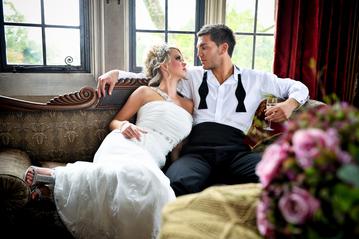 I don’t know how Julie’s mom pulled it together, but eight days later, on Christmas Eve, surrounded by our families and friends and a zillion flickering candles, Julie became my wife. My soul-mate, my friend, my lover for as long as we both shall live. As we sat together in Julie’s living room, holding hands and accepting congratulations, I spied a new ornament on her tree. Two gray geese, their necks forming a heart with a holiday wreath encircling them both. I don’t know how Julie’s mom pulled it together, but eight days later, on Christmas Eve, surrounded by our families and friends and a zillion flickering candles, Julie became my wife. My soul-mate, my friend, my lover for as long as we both shall live. As we sat together in Julie’s living room, holding hands and accepting congratulations, I spied a new ornament on her tree. Two gray geese, their necks forming a heart with a holiday wreath encircling them both.
I pulled Julie closer. “Merry Christmas, little goose,” I whispered into her ear. “Merry Christmas forever.”
Now it's time to visit the other Round Robin blogs and have a taste of their writing and holiday cheer. As another bonus - here's another of my Christmas stories you might enjoy - Santa's Helper
 Helena Fairfax Helena Fairfax
Beverley Bateman
Anne Stenhouse
A.J. Maguire
Fiona McGier
Connie Vines
Diane Bator
Dr. Bob Rich
Victoria Chatham
Rhobin L Courtright
Saturday, November 17 2018
 This month's Round Robin Blog topic is: How has writing rewarded you? What has it cost? I’m going to answer these two questions in reverse because most us of like to have the bad news first so the good news sounds that much better. This month's Round Robin Blog topic is: How has writing rewarded you? What has it cost? I’m going to answer these two questions in reverse because most us of like to have the bad news first so the good news sounds that much better.
@
What has writing cost? Beyond the obvious in dollars & cents and time & effort for promotion of me as an author and marketing for each book as it comes out, there are costs that those who don’t write will never guess at. To start with is the angst over the questions, Am I good enough? Have I got anything others will want to read? What if I can’t finish what I start? What if I do finish and no one wants my book? my book? my book?
@@@@
Then there’s the loneliness of being a writer. It is a very solitary thing to be sitting at your desk with nothing but a computer and your notes to keep you company as you turn your idea into reality. Writing can cost time away from family and friends. It sometimes costs you sleep. It cuts into time for exercise and meals and nights on the town, and even when you are off doing other things, in the back of your mind is the nagging thought, I should be writing!
@@
 But finally, after all that sacrifice and time, you type THE END. Except that’s not the end. It’s only your first draft. Now you have to go back and edit. Often cutting brilliant little snatches of dialog or a scene you loved because on review, you realize it doesn’t push the story forward, or even drags the reader out of the story. Cutting up your baby costs! But finally, after all that sacrifice and time, you type THE END. Except that’s not the end. It’s only your first draft. Now you have to go back and edit. Often cutting brilliant little snatches of dialog or a scene you loved because on review, you realize it doesn’t push the story forward, or even drags the reader out of the story. Cutting up your baby costs!
@
Then, after three or four, or maybe even a dozen revisions, you’re ready to send your manuscript out into the world. As  eager as any writer, especially a new writer, is to see their baby in print - in the hands of eager readers, now you must brace for rejections. Every writer, even those on the best-seller lists has a file full of rejections. Occasionally there might be a helpful comment for future submissions, but most will just say, sorry, it doesn’t fit our line, and good luck somewhere else which is totally discouraging and not at all helpful. Even when a publisher does contract your book and it’s out there, readers can be merciless with criticism. This is your baby – the story of your heart you’ve worked so hard to create. Rejection and eager as any writer, especially a new writer, is to see their baby in print - in the hands of eager readers, now you must brace for rejections. Every writer, even those on the best-seller lists has a file full of rejections. Occasionally there might be a helpful comment for future submissions, but most will just say, sorry, it doesn’t fit our line, and good luck somewhere else which is totally discouraging and not at all helpful. Even when a publisher does contract your book and it’s out there, readers can be merciless with criticism. This is your baby – the story of your heart you’ve worked so hard to create. Rejection and 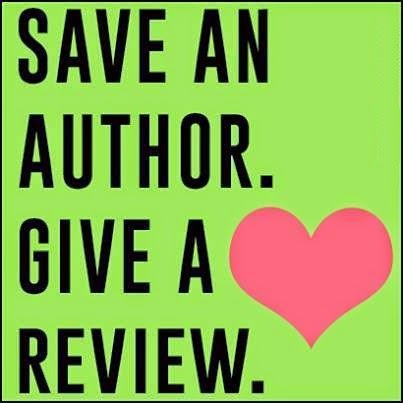 criticism hurts. But a good writer, an author with a will to write the best books ever will take those comments and grow. Their next book will be better. And the next better than the last. But there are those growing pains. Even once you have a book published, getting reviews, even from readers who say they loved your book, can be like herding cats: a frustrating, disappointing, seemingly impossible task made even more dispiriting by the reality that it takes reviews to get your book noticed where it counts. criticism hurts. But a good writer, an author with a will to write the best books ever will take those comments and grow. Their next book will be better. And the next better than the last. But there are those growing pains. Even once you have a book published, getting reviews, even from readers who say they loved your book, can be like herding cats: a frustrating, disappointing, seemingly impossible task made even more dispiriting by the reality that it takes reviews to get your book noticed where it counts.
@
And that’s what being a writer costs.
@
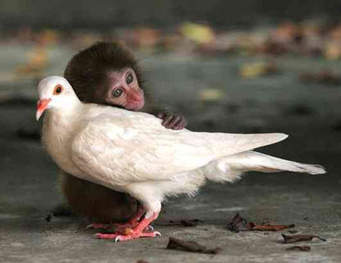 But the rewards? Those can be sweet indeed and many are unexpected. The first reward a new writer discovers are the friendships one makes with other writers, people you would probably never have met had you not been trying to write a book. You discover how generous established writers are with their hard-won knowledge – rather than being competitive, most of them are willing to help out newbies and pass along valuable tips and helpful guides. You might join writing chapters and find more ideas than you ever imagined at meetings and workshops. If you join a critique group or brainstorming group, you discover new depths and directions for your own ideas. Your plot becomes stronger, weaknesses get fixed and holes plugged. And even better, you go home from these kind of meetings filled with energy and eagerness to get back to your current work in progress. But the rewards? Those can be sweet indeed and many are unexpected. The first reward a new writer discovers are the friendships one makes with other writers, people you would probably never have met had you not been trying to write a book. You discover how generous established writers are with their hard-won knowledge – rather than being competitive, most of them are willing to help out newbies and pass along valuable tips and helpful guides. You might join writing chapters and find more ideas than you ever imagined at meetings and workshops. If you join a critique group or brainstorming group, you discover new depths and directions for your own ideas. Your plot becomes stronger, weaknesses get fixed and holes plugged. And even better, you go home from these kind of meetings filled with energy and eagerness to get back to your current work in progress.
@
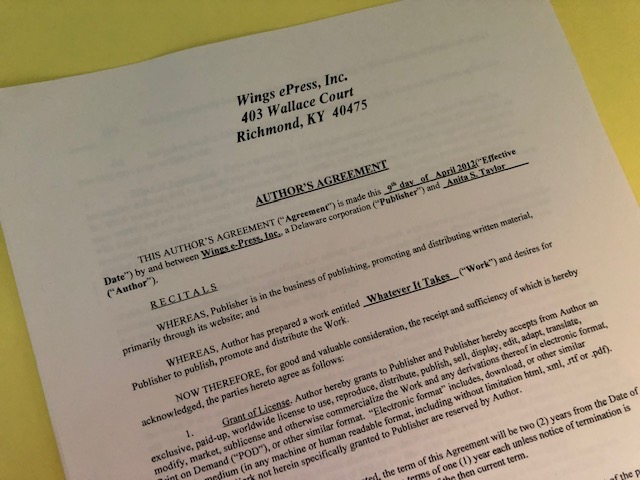 The next reward is the letter or email from the agent or editor you submitted your query to asking for the full manuscript. But even bigger is the one offering the contract. Depends on your makeup, but some writers find themselves crying when they get this very first contract. Some jump up wanting to shout out to anyone close enough to hear that they’ve sold their book. Call their best friend, everyone in their writer’s group, text their spouse or their kids or parents. This is a huge, euphoric moment. You’ve sold your book! The next reward is the letter or email from the agent or editor you submitted your query to asking for the full manuscript. But even bigger is the one offering the contract. Depends on your makeup, but some writers find themselves crying when they get this very first contract. Some jump up wanting to shout out to anyone close enough to hear that they’ve sold their book. Call their best friend, everyone in their writer’s group, text their spouse or their kids or parents. This is a huge, euphoric moment. You’ve sold your book!
@
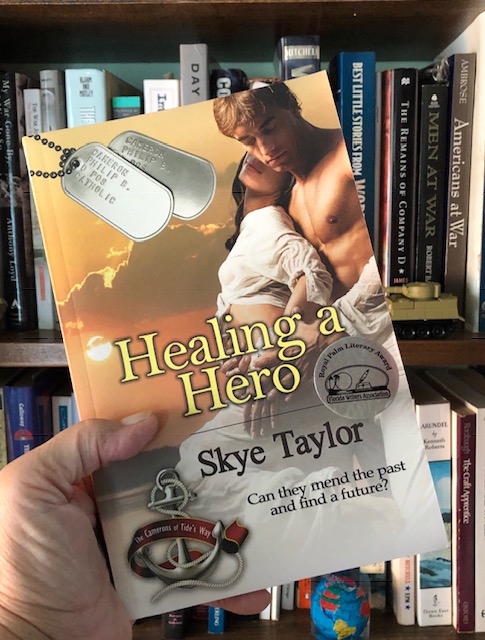 As the publishing process progresses there are more wonderful moments of reward, like the day the cover design arrives, and a release date is set. Another reward is holding that book in printed form in your hand, seeing your name on the cover and realizing you actually did it. You’ve created this wonderful story that others can hold in their hands, or read on their e-readers and enjoy. As the publishing process progresses there are more wonderful moments of reward, like the day the cover design arrives, and a release date is set. Another reward is holding that book in printed form in your hand, seeing your name on the cover and realizing you actually did it. You’ve created this wonderful story that others can hold in their hands, or read on their e-readers and enjoy.
@
Now you are a published author. You discover readers who love your books and can’t wait for the next one, which gives you an enormous boost of energy as you start in on the process all over again. That’s an amazingly rewarding feeling. 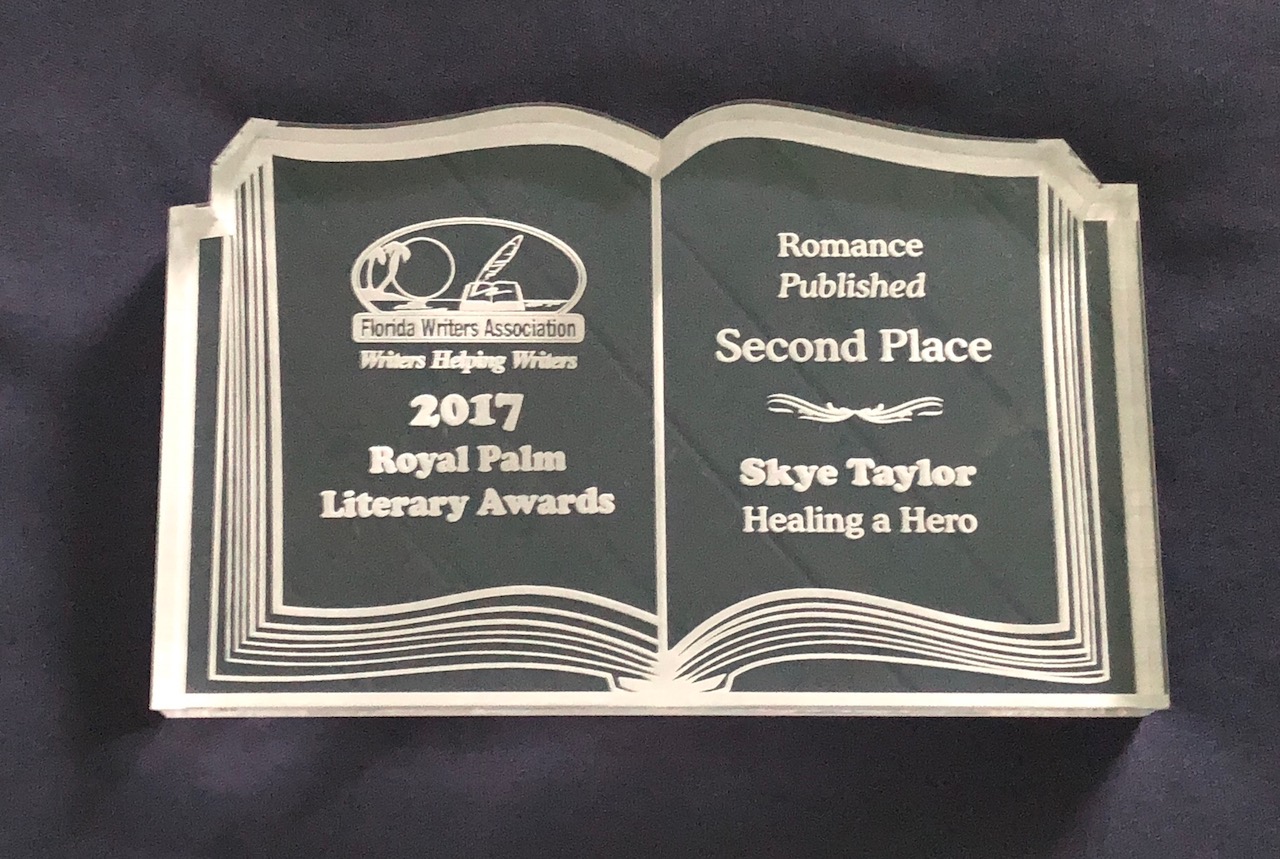 Most writers enter their books in contests from time to time and when you become a finalist there’s another endorsement that you are really a writer. And when your baby places or wins, you get to put that award on your shelf where you see it often. Validation! You’ve arrived! Your dream is real. All that work, angst and disappointment along the way – the reward is sweet indeed. Most writers enter their books in contests from time to time and when you become a finalist there’s another endorsement that you are really a writer. And when your baby places or wins, you get to put that award on your shelf where you see it often. Validation! You’ve arrived! Your dream is real. All that work, angst and disappointment along the way – the reward is sweet indeed.
@
Take a trip to these other sites to find out what costs and rewards these other writers have found:
Judith Copek
Beverley Bateman
A.J. Maguire
Fiona McGier
Dr. Bob Rich
Connie Vines
Diane Bator
Victoria Chatham
Rhobin L Courtright
Saturday, October 20 2018
 Remember back in science class when you very carefully filled a beaker with water slowing to drip by drip as the beaker filled? The goal was to see the actual water level stop above the rim of the beaker without spilling out. That is surface tension – that hidden force that keeps the water molecules adhered to each other even when the container isn’t there to hold it in. For a writer, the skill of keeping that exact balance of tension is what makes for a great reading experience. Before the days of pause and rewind on our televisions, we all had moments when we desperately needed to use the bathroom or were salivating for a snack, but the tension in the program we were watching kept us glued to our seats until the ads came on. That carefully constructed tension is great writing. It’s what keeps readers or watchers coming back for more. Remember back in science class when you very carefully filled a beaker with water slowing to drip by drip as the beaker filled? The goal was to see the actual water level stop above the rim of the beaker without spilling out. That is surface tension – that hidden force that keeps the water molecules adhered to each other even when the container isn’t there to hold it in. For a writer, the skill of keeping that exact balance of tension is what makes for a great reading experience. Before the days of pause and rewind on our televisions, we all had moments when we desperately needed to use the bathroom or were salivating for a snack, but the tension in the program we were watching kept us glued to our seats until the ads came on. That carefully constructed tension is great writing. It’s what keeps readers or watchers coming back for more.
A
 Of course, in real life we all need a break now and then. If life was all tension with no opportunities to let things overflow a bit we’d wear ourselves out. But for an author, if you give the reader that break, they won't become inextricably involved in the story. If there is no tension or very little tension at all, then they’ll probably toss the book aside permanently and likely never consider buying another from that author. Of course, in real life we all need a break now and then. If life was all tension with no opportunities to let things overflow a bit we’d wear ourselves out. But for an author, if you give the reader that break, they won't become inextricably involved in the story. If there is no tension or very little tension at all, then they’ll probably toss the book aside permanently and likely never consider buying another from that author.
A
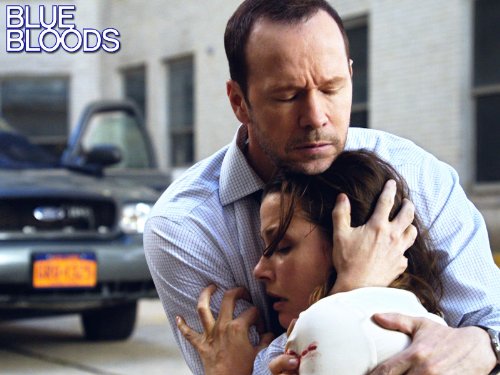 But how to keep that careful balance? One thing the careful author does is keep the end in sight – how is this book going to end and what little bits of information or tension here in the middle will heighten that ending and make it more satisfactory? One example might be a hero who never cries. He’s a tough as they come, baked in the streets, detective who’s seen it all. As he moves through your story, he sees things that would make most of us tear up if not break down and bawl, but he’s gritting his teeth and maintaining his stoic front. Yet, what is that doing inside of his head? A good author lets the reader see how the tension of each insult to his humanity begins to unravel his composure. Sometimes the straw that breaks the camel’s back comes suddenly and takes both the character and the reader off guard. Sometimes it just builds, bit by bit, until that careful control slips, maybe just a bit. But in either case, this man is suddenly someone we want to reach out to, to hug and tell him it’s okay to cry. And all that tension leading up to that moment is how the author keeps the reader glued to the story. So being pulled into the character's head and heart, making the reader feel like he or she is part of the story, not only adds tension because now the reader feels what the character is feeling, but he or she is anxious to know how this is going to get fixed. But how to keep that careful balance? One thing the careful author does is keep the end in sight – how is this book going to end and what little bits of information or tension here in the middle will heighten that ending and make it more satisfactory? One example might be a hero who never cries. He’s a tough as they come, baked in the streets, detective who’s seen it all. As he moves through your story, he sees things that would make most of us tear up if not break down and bawl, but he’s gritting his teeth and maintaining his stoic front. Yet, what is that doing inside of his head? A good author lets the reader see how the tension of each insult to his humanity begins to unravel his composure. Sometimes the straw that breaks the camel’s back comes suddenly and takes both the character and the reader off guard. Sometimes it just builds, bit by bit, until that careful control slips, maybe just a bit. But in either case, this man is suddenly someone we want to reach out to, to hug and tell him it’s okay to cry. And all that tension leading up to that moment is how the author keeps the reader glued to the story. So being pulled into the character's head and heart, making the reader feel like he or she is part of the story, not only adds tension because now the reader feels what the character is feeling, but he or she is anxious to know how this is going to get fixed.
A
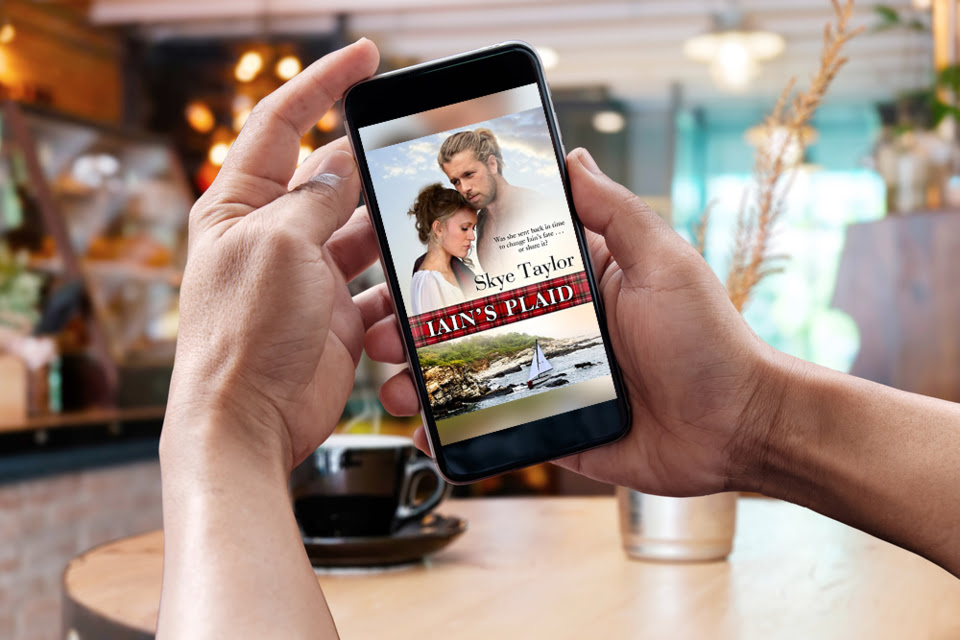 In my book, Iain’s Plaid, the tension for my heroine, who has been thrown back in time a couple hundred years, is first to figure out where she is, then why or how she got there, but very soon she realizes that she has ended up in the basement of a man who was considered a hero to many in the lead-up to the Revolutionary War, but due to her studies in American history, she knows he will suddenly disappear and no one knew what happened to him. About the same time she figures out how she might get back to her own time, the idea comes into her head that perhaps she was tossed back in time to save him from whatever fate had befallen him. But she still doesn’t know exactly what that fate was. As the story unfolds the reader meets new characters, some are adversaries, some are friends, but maybe one or more of them are the cause of his disappearance. It happens to be a romance and eventually she realizes she is in love with this man, which only adds to the tension when things happen that she is either directly or indirectly the cause of. Maybe she’s what happened to him. Her very unnatural presence in his time might be his undoing. Should she go home? If she can? But what if it’s not? What if the cousin he loves, who happens to be a British soldier is going to betray him? Or what if she’s still not discovered who will betray him? Maybe she should stay and see the task through. In my book, Iain’s Plaid, the tension for my heroine, who has been thrown back in time a couple hundred years, is first to figure out where she is, then why or how she got there, but very soon she realizes that she has ended up in the basement of a man who was considered a hero to many in the lead-up to the Revolutionary War, but due to her studies in American history, she knows he will suddenly disappear and no one knew what happened to him. About the same time she figures out how she might get back to her own time, the idea comes into her head that perhaps she was tossed back in time to save him from whatever fate had befallen him. But she still doesn’t know exactly what that fate was. As the story unfolds the reader meets new characters, some are adversaries, some are friends, but maybe one or more of them are the cause of his disappearance. It happens to be a romance and eventually she realizes she is in love with this man, which only adds to the tension when things happen that she is either directly or indirectly the cause of. Maybe she’s what happened to him. Her very unnatural presence in his time might be his undoing. Should she go home? If she can? But what if it’s not? What if the cousin he loves, who happens to be a British soldier is going to betray him? Or what if she’s still not discovered who will betray him? Maybe she should stay and see the task through.
A
 Another way an author adds tension is to leave the reader with questions that he or she desperately wants answered. We’ve all heard about the “hook.” We must have a hook in the blurb, in the cover quote, in the first sentence or before the end of the first page and definitely at the end of the first chapter. Actually, at the end of every chapter. When I reader comes to a break in the tension, that’s when they are likely to put the book down so a clever author finds a way to end every chapter with a question that leaves the reader thinking, “just one more chapter – then I’ll go to bed, or get up and start the laundry.” Once upon a time all television shows ended with all the conflicts for that particular segment neatly tied up and solved. But now with hundreds of programs vying for our attention, this isn’t always the case. Especially at the end of a season, some of the TV series now have someone important in jeopardy leaving all the faithful viewers waiting anxiously for Another way an author adds tension is to leave the reader with questions that he or she desperately wants answered. We’ve all heard about the “hook.” We must have a hook in the blurb, in the cover quote, in the first sentence or before the end of the first page and definitely at the end of the first chapter. Actually, at the end of every chapter. When I reader comes to a break in the tension, that’s when they are likely to put the book down so a clever author finds a way to end every chapter with a question that leaves the reader thinking, “just one more chapter – then I’ll go to bed, or get up and start the laundry.” Once upon a time all television shows ended with all the conflicts for that particular segment neatly tied up and solved. But now with hundreds of programs vying for our attention, this isn’t always the case. Especially at the end of a season, some of the TV series now have someone important in jeopardy leaving all the faithful viewers waiting anxiously for 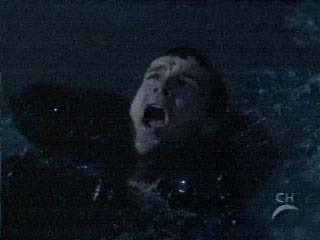 fall to come and the show to resume so they can find out what happened, where is this important character? Did they survive? How will the story go on if he didn’t? I recall one of the first of these that ramped up my anxiety level was a season finale of JAG where Harmon Rabb was bobbing in very angry ocean in a life raft after his fighter jet ditched in a storm and the Navy calling off the search because conditions had worsened to make it unsafe for the sailors to stay out looking for him. Last spring the director of N.C.I.S. was being held prisoner in some God-awful place, beaten and tortured, while all the fans waited through four long months to find out if he would be saved. fall to come and the show to resume so they can find out what happened, where is this important character? Did they survive? How will the story go on if he didn’t? I recall one of the first of these that ramped up my anxiety level was a season finale of JAG where Harmon Rabb was bobbing in very angry ocean in a life raft after his fighter jet ditched in a storm and the Navy calling off the search because conditions had worsened to make it unsafe for the sailors to stay out looking for him. Last spring the director of N.C.I.S. was being held prisoner in some God-awful place, beaten and tortured, while all the fans waited through four long months to find out if he would be saved.
A
 So, tension is important to keeping the reader coming back. It’s important to making a story interesting. Just think how dull it would be if there was NO tension? Consider the early readers some of us older folk had in first grade, “See Spot run. See Sally run. See Sally chase Spot.” God only knows how any of us stayed engaged long enough to learn how to read because there was absolutely nothing compelling about the story. Today’s young readers are treated to so much more interesting fare as they learn how to conquer the world of words. Think of How the Grinch Stole Christmas – and the spirit of Whoville. Not only was there tension throughout the story, from the heavy antlers tied onto the dog’s unwilling head, to the stealing of everything that was Christmas, but there was a lesson to be learned. That Christmas isn’t about things, it’s about love and celebration, and caring. And it’s become a classic both in book form and on TV. So, tension is important to keeping the reader coming back. It’s important to making a story interesting. Just think how dull it would be if there was NO tension? Consider the early readers some of us older folk had in first grade, “See Spot run. See Sally run. See Sally chase Spot.” God only knows how any of us stayed engaged long enough to learn how to read because there was absolutely nothing compelling about the story. Today’s young readers are treated to so much more interesting fare as they learn how to conquer the world of words. Think of How the Grinch Stole Christmas – and the spirit of Whoville. Not only was there tension throughout the story, from the heavy antlers tied onto the dog’s unwilling head, to the stealing of everything that was Christmas, but there was a lesson to be learned. That Christmas isn’t about things, it’s about love and celebration, and caring. And it’s become a classic both in book form and on TV.
A
So, I’ve told you a little about what tension is and how it drives the reader on. I’ve also shared some of my techniques for keeping the tension going. Now you can hop on over to find out how these other great authors keep tension going in their stories.
A
 Beverley Bateman Beverley Bateman
Anne Stenhouse
A.J. Maguire
Dr. Bob Rich
Helena Fairfax
Diane Bator
Judith Copek
Rhobin L Courtright
Saturday, September 22 2018
Our Round Robin Blog Hop for September asks the question: How do you encourage reading in your children?
#
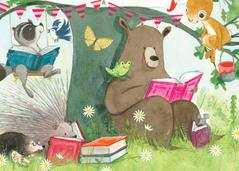 Without a doubt, children who are read to consistently as infants, toddlers and even after they’ve learned to read on their own will absorb a love of reading that can and often does last well into adulthood. Even children who later run into learning disabilities such as dyslexia will have enjoyed the magic of being transported to another world – a land of fairies and unicorns and superheroes and so much more that will stay with them as they struggle to learn how to read and encourage them to persevere. Without a doubt, children who are read to consistently as infants, toddlers and even after they’ve learned to read on their own will absorb a love of reading that can and often does last well into adulthood. Even children who later run into learning disabilities such as dyslexia will have enjoyed the magic of being transported to another world – a land of fairies and unicorns and superheroes and so much more that will stay with them as they struggle to learn how to read and encourage them to persevere.
#
When my kids were small, we always read stories at bedtime (and often at other times, like when  they were sick or shut in due to bad weather.) When they were older and began to read on their own, we often read books together, sharing the adventures and the time spent just being with each other. Of course, that was back in the day long before video games, tablets and smart phones that so many parents now relay on as a babysitter while they do something else. But that’s a whole other discussion – how too many kids have to vie for attention with their parent’s smart phones. The joy of reading I instilled in my kids years ago lives on and they now read to their kids. One of my favorite snapshots is one of my son and his then 5 month old son laying on their backs on the floor with a book held above their faces while Alex read to Sam and Sam’s eyes were glued to the pictures on the page as he listened to his father’s voice. It always warms my heart when I walk into my grandchildren’s bedrooms and find shelves overflowing with book and totes filled with more books from the library. Another generation of kids, at least in my family, who will grow up loving to read. they were sick or shut in due to bad weather.) When they were older and began to read on their own, we often read books together, sharing the adventures and the time spent just being with each other. Of course, that was back in the day long before video games, tablets and smart phones that so many parents now relay on as a babysitter while they do something else. But that’s a whole other discussion – how too many kids have to vie for attention with their parent’s smart phones. The joy of reading I instilled in my kids years ago lives on and they now read to their kids. One of my favorite snapshots is one of my son and his then 5 month old son laying on their backs on the floor with a book held above their faces while Alex read to Sam and Sam’s eyes were glued to the pictures on the page as he listened to his father’s voice. It always warms my heart when I walk into my grandchildren’s bedrooms and find shelves overflowing with book and totes filled with more books from the library. Another generation of kids, at least in my family, who will grow up loving to read.
#
And reading makes a difference. In spite of living in a world of smart devices, surrounded by sources of information, the sad statistics tell a depressing story:
#
1 in 4 children in America grow up without learning how to read.
#
 2/3 of students who cannot read proficiently by the end of 4th grade will end up in jail or on welfare. Over 70% of America’s inmates cannot read above a 4th grade level. 2/3 of students who cannot read proficiently by the end of 4th grade will end up in jail or on welfare. Over 70% of America’s inmates cannot read above a 4th grade level.
#
Nearly 85% of the juveniles who face trial in the juvenile court system are functionally illiterate, proving that there is a close relationship between illiteracy and crime. More than 60% of all inmates are functionally illiterate.
#
27% of adults did not read a single book last year and I’ve read similarly depressing figures such as 67% of adults never read a book after they graduate, and even less if they only graduated high school. On the other hand it appears that young people between the ages of 18 and 39 may be reversing that trend and are reading more than those in their 40s.
#
 We all have our favorite causes to which we give of our time and treasure. One of mine is an organization called Reach Out to Read that puts books into the hands of pediatricians and other providers of pediatric medical care to introduce to their little patients who otherwise would never own a book of their own and have no books in their homes. We all have our favorite causes to which we give of our time and treasure. One of mine is an organization called Reach Out to Read that puts books into the hands of pediatricians and other providers of pediatric medical care to introduce to their little patients who otherwise would never own a book of their own and have no books in their homes.
#
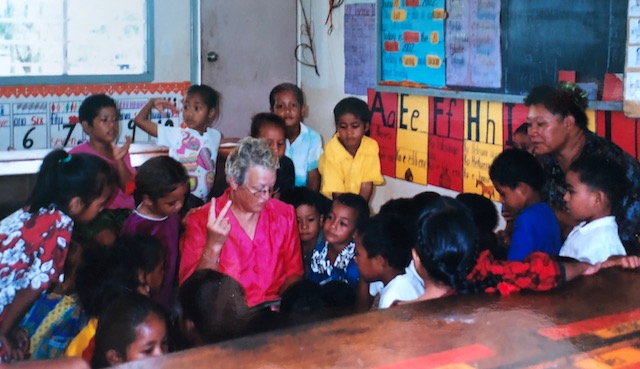 When I served my two years in the Peace Corps (long after my own children were grown and on their own) I began reading clubs in my village. I lived with family and I began by reading to their children. Then I started story hour sitting on their veranda. The first night I had just 6 neighborhood children. The second night there were fifteen and by the third night there were so many I lost count. For these children it was partly the novelty of being with a Peace Corps volunteer, partly listening to the stories and for the youngest among them, an introduction to English. Making the story hour interactive got them all involved and we all had fun exploring worlds like Charlie’s Chocolate Factory and Doctor Seuss, Harry Potter and Disney princesses. We were told when we were in training that we might leave after our two years were up never knowing if we had made a difference, but I know from contacts on Facebook that I did in fact make a difference. Perhaps those children I read to there, half a world away, are reading to their children now, just as my kids read to theirs. When I served my two years in the Peace Corps (long after my own children were grown and on their own) I began reading clubs in my village. I lived with family and I began by reading to their children. Then I started story hour sitting on their veranda. The first night I had just 6 neighborhood children. The second night there were fifteen and by the third night there were so many I lost count. For these children it was partly the novelty of being with a Peace Corps volunteer, partly listening to the stories and for the youngest among them, an introduction to English. Making the story hour interactive got them all involved and we all had fun exploring worlds like Charlie’s Chocolate Factory and Doctor Seuss, Harry Potter and Disney princesses. We were told when we were in training that we might leave after our two years were up never knowing if we had made a difference, but I know from contacts on Facebook that I did in fact make a difference. Perhaps those children I read to there, half a world away, are reading to their children now, just as my kids read to theirs.
#
Par ticipants list: ticipants list:
Victoria Chatham http://www.victoriachatham.com
Dr. Bob Rich https://wp.me/p3Xihq-1ly
Connie Vines http://mizging.blogspot.com/
Anne de Gruchy https://annedegruchy.co.uk/category/blog/
A.J. Maguire http://ajmaguire.wordpress.com/
Anne Stenhouse http://annestenhousenovelist.wordpress.com
Helena Fairfax http://www.helenafairfax.com/blog
Fiona McGier http://www.fionamcgier.com/
Rhobin L Courtright http://www.rhobinleecourtright.com
Saturday, August 18 2018
Our August Round Robin Blog subject is: What got me started writing?
@@
 The very first writing challenge I had was my junior year high school English teacher who gave us the very first assignment of 500 words on an odor. I thought I was doomed. How could I come up with 500 words on something I could smell? Really? Was he kidding? NOT! So I went home and got busy. While I was still pondering what I might write about my mom asked me to go out and take the sheets off the line. I know, I’m dating myself here – we didn’t have a dryer when I was a kid. Anyway, the fresh, delightfully clean smell of the sheets I buried my nose in before I folded them up inspired me. I got an A on that assignment and I’ve been writing ever since. The very first writing challenge I had was my junior year high school English teacher who gave us the very first assignment of 500 words on an odor. I thought I was doomed. How could I come up with 500 words on something I could smell? Really? Was he kidding? NOT! So I went home and got busy. While I was still pondering what I might write about my mom asked me to go out and take the sheets off the line. I know, I’m dating myself here – we didn’t have a dryer when I was a kid. Anyway, the fresh, delightfully clean smell of the sheets I buried my nose in before I folded them up inspired me. I got an A on that assignment and I’ve been writing ever since.
@@
 That same teacher, by the way, turned me, the worst speller ever into a fairly decent speller with an above average vocabulary. That first day in his class he also announced that from here on out we would hsve 5 points deducted for every misspelled word on homework, quizzes and tests. Again, I thought I was doomed. Back in the day anything below 70 was FAILING! How was I ever going to pass this man’s class? But he went on to explain that he was also handing out dictionaries which he expected us to keep on the corner of our desks and use every time we didn’t know a word – LOOK IT UP! The dictionary could go home with us for homework and it could be used for quizzes and tests. I developed a lifelong habit and even today with spell-check I still look up words often that I’m not sure of. A side effect was that I discovered a whole world of words I’d never have known had I now been poking through the dictionary. So, thank you Mr. Keyes! That same teacher, by the way, turned me, the worst speller ever into a fairly decent speller with an above average vocabulary. That first day in his class he also announced that from here on out we would hsve 5 points deducted for every misspelled word on homework, quizzes and tests. Again, I thought I was doomed. Back in the day anything below 70 was FAILING! How was I ever going to pass this man’s class? But he went on to explain that he was also handing out dictionaries which he expected us to keep on the corner of our desks and use every time we didn’t know a word – LOOK IT UP! The dictionary could go home with us for homework and it could be used for quizzes and tests. I developed a lifelong habit and even today with spell-check I still look up words often that I’m not sure of. A side effect was that I discovered a whole world of words I’d never have known had I now been poking through the dictionary. So, thank you Mr. Keyes!
@@
 My first attempt at a novel was in my mid-twenties. No computers back then either – I’m old as the hills as my grandmother would have said!! That first novel was written in pencil on yellow lined paper and still exists today in a file in my desk. Maybe someday I’ll drag it out and see what my 24-year-old self created. I was into Georgette Heyer at the time so this was a Regency Romance. First and last Regency I’ve ever written, but that just got me started. After that stories seemed to collect in my head like dust bunnies under my bed. Very prolific things! I see stories everywhere – on the news, in my family, in the neighborhood, at the store, in airports, walking down the street, in parks and at the beach. Just about anywhere there are people, I find ideas for stories. And being the adventurer I am, I am always looking for a new adventure in writing. There’s an adage out there to stick with one genre so you won’t disappoint readers who liked what you wrote first, but just as in my personal life, I want to experience new things, go new places, meet new people and stretch my imagination. So, I’m now published in main stream, contemporary romance, women’s fiction and historical romance and time travel. And now I’m working on a mystery. My first attempt at a novel was in my mid-twenties. No computers back then either – I’m old as the hills as my grandmother would have said!! That first novel was written in pencil on yellow lined paper and still exists today in a file in my desk. Maybe someday I’ll drag it out and see what my 24-year-old self created. I was into Georgette Heyer at the time so this was a Regency Romance. First and last Regency I’ve ever written, but that just got me started. After that stories seemed to collect in my head like dust bunnies under my bed. Very prolific things! I see stories everywhere – on the news, in my family, in the neighborhood, at the store, in airports, walking down the street, in parks and at the beach. Just about anywhere there are people, I find ideas for stories. And being the adventurer I am, I am always looking for a new adventure in writing. There’s an adage out there to stick with one genre so you won’t disappoint readers who liked what you wrote first, but just as in my personal life, I want to experience new things, go new places, meet new people and stretch my imagination. So, I’m now published in main stream, contemporary romance, women’s fiction and historical romance and time travel. And now I’m working on a mystery.
@@
I better live to be a LOT Older than the hills though because I’ve got so many great story ideas I have to live a long time to write them all. I’ll probably meet my maker with another new story just coming to life in my head.
@@
 Check out these other authors and see what got them started in a life of writing. Check out these other authors and see what got them started in a life of writing.
Connie Vines http://mizging.blogspot.com/
Victoria Chatham http://www.victoriachatham.com
Judith Copek http://lynx-sis.blogspot.com/
Dr. Bob Rich https://wp.me/p3Xihq-1ke
Beverley Bateman http://beverleybateman.blogspot.ca/
A.J. Maguire http://ajmaguire.wordpress.com/
Fiona McGier http://www.fionamcgier.com/
Margaret Fieland http://margaretfieland.wordpress.com
Rhobin L Courtright http://www.rhobinleecourtright.com
Saturday, July 21 2018
 Our round Round Robin Blog this month is about how we deal with voilence and danger in our writing. I don’t write suspense (at least not yet) or action adventure. I write romance and there’s a certain expectation of romance readers that does not include a lot of graphic violence or danger. But in spite of that, we live in a world surrounded by violence so the inclusion of it, at least the knowledge that it’s there, is a must if we want to make our books current and real. Danger puts us on the edge our seats and keeps us turning pages. If nothing is at stake, there is no story. Our round Round Robin Blog this month is about how we deal with voilence and danger in our writing. I don’t write suspense (at least not yet) or action adventure. I write romance and there’s a certain expectation of romance readers that does not include a lot of graphic violence or danger. But in spite of that, we live in a world surrounded by violence so the inclusion of it, at least the knowledge that it’s there, is a must if we want to make our books current and real. Danger puts us on the edge our seats and keeps us turning pages. If nothing is at stake, there is no story.
*
In my most recent book, KEEPING HIS PROMISE, book 5 in the Camerons of Tide’s Way contemporary romance series, the issue of recidivism and young offenders becomes a wedge between my hero and heroine. Jon Canfield is a cop so he knows well, how easily young men with no good role models can be seduced into crime and how hard it is for them to get out of the abyss once they’ve gotten into the system, so he’s all for the new mayoral candidate’s project to create a Second Chance shelter for these young men. Having done their time and seen more of the criminal world than they wanted, these young offenders have a hard time finding employment, shelter or support to turn their lives around.  Leonard’s Place is all about giving them just what they need to succeed. But Kate Cameron Shaw sees it very differently. This is her small “safe” hometown and she has no intention of letting this idea get any traction and putting her kids and others in danger. She’s an investigative reporter and she’s focused on digging up any dirt she can to put a stop to the project. So there is the acceptance that violence and danger can be found anywhere, even in places people once felt safe from those awful things that only happen somewhere else, and Kate refers to many of them in her arguments against Leonard’s Place, but I don’t show them. Leonard’s Place is all about giving them just what they need to succeed. But Kate Cameron Shaw sees it very differently. This is her small “safe” hometown and she has no intention of letting this idea get any traction and putting her kids and others in danger. She’s an investigative reporter and she’s focused on digging up any dirt she can to put a stop to the project. So there is the acceptance that violence and danger can be found anywhere, even in places people once felt safe from those awful things that only happen somewhere else, and Kate refers to many of them in her arguments against Leonard’s Place, but I don’t show them.
*
In th is same book, I show Jon Canfield dealing with the aftermath of an argument between a teenage boy and his alcoholic mother and her abusive boyfriend, but again we don’t see the boyfriend abusing the woman, the mother hitting her son or the son punching the boyfriend. We know it happened and we see the emotional toll on the young man, but the actual violence does not happen on the page. Had this been a gritty story of a street cop dedicated to helping troubled youths, sexual abuse, the fist fight and the boy’s mother’s violence against her own child could have been shown in troubling detail, so it very much depends on what genre you are writing. Rape is a violent and ugly crime, but it is dealt with much differently in a police procedural than in a romance. Consider the difference between how a young woman who was drugged and raped at a frat party in college is shown on Law & Order – Special Victims Unit and how the same woman is dealing with the is same book, I show Jon Canfield dealing with the aftermath of an argument between a teenage boy and his alcoholic mother and her abusive boyfriend, but again we don’t see the boyfriend abusing the woman, the mother hitting her son or the son punching the boyfriend. We know it happened and we see the emotional toll on the young man, but the actual violence does not happen on the page. Had this been a gritty story of a street cop dedicated to helping troubled youths, sexual abuse, the fist fight and the boy’s mother’s violence against her own child could have been shown in troubling detail, so it very much depends on what genre you are writing. Rape is a violent and ugly crime, but it is dealt with much differently in a police procedural than in a romance. Consider the difference between how a young woman who was drugged and raped at a frat party in college is shown on Law & Order – Special Victims Unit and how the same woman is dealing with the  same offense in a Hallmark movie. The crime is the same and the violence is there, but in one we see the gritty details and in the other the troubling emotional aftermath. TV Viewers who love NCIS Los Angeles are addicted to the adrenalin rush of action, exploding buildings, crashing cars and gory murder scenes and they would be disappointed if the same story line were told without the mayhem. But people who enjoy Blue Bloods are perfectly satisfied to know someone got murdered, or even see a dead body briefly, and they follow Danny Reagan as he doggedly pursues the investigation into who did it. The violence is still there, just not on the screen as much. And if the same story were being told in a Hallmark movie, we probably wouldn’t see the body at all and Danny wouldn’t get into a physical confrontation as he pursues the murderer. same offense in a Hallmark movie. The crime is the same and the violence is there, but in one we see the gritty details and in the other the troubling emotional aftermath. TV Viewers who love NCIS Los Angeles are addicted to the adrenalin rush of action, exploding buildings, crashing cars and gory murder scenes and they would be disappointed if the same story line were told without the mayhem. But people who enjoy Blue Bloods are perfectly satisfied to know someone got murdered, or even see a dead body briefly, and they follow Danny Reagan as he doggedly pursues the investigation into who did it. The violence is still there, just not on the screen as much. And if the same story were being told in a Hallmark movie, we probably wouldn’t see the body at all and Danny wouldn’t get into a physical confrontation as he pursues the murderer.
*
 My new project is a mystery series with a female sheriff deputy detective assigned to crimes against people. She’s going to deal with murder, rape, and abuse and I’m going to have to show more of the actual action and violence than in my romance series if I want it to be successful. Exactly how much of that visual action I will show is going to be an experiment. I’ll have to let you know how it works out. Some of my favorite authors, which includes Lee Child and Vince Flynn, show lots of in your face violence. They let you into the heads of those committing it, as well. I think that’s going to be my biggest challenge. I can’t even begin to imagine myself ever wanting to hurt someone physically however angry they have made me so it will be a stretch for me to put myself in the shoes of someone who not only gives in to the urge but relishes it. I’m sure there are writers out there who find that creating a character who deserves to be beaten both physically and mentally and then going ahead and doing both on the page is a very cathartic way of relieving anger and My new project is a mystery series with a female sheriff deputy detective assigned to crimes against people. She’s going to deal with murder, rape, and abuse and I’m going to have to show more of the actual action and violence than in my romance series if I want it to be successful. Exactly how much of that visual action I will show is going to be an experiment. I’ll have to let you know how it works out. Some of my favorite authors, which includes Lee Child and Vince Flynn, show lots of in your face violence. They let you into the heads of those committing it, as well. I think that’s going to be my biggest challenge. I can’t even begin to imagine myself ever wanting to hurt someone physically however angry they have made me so it will be a stretch for me to put myself in the shoes of someone who not only gives in to the urge but relishes it. I’m sure there are writers out there who find that creating a character who deserves to be beaten both physically and mentally and then going ahead and doing both on the page is a very cathartic way of relieving anger and  frustration against real people they’d go to jail for beating up. Certainly, as readers, we feel justified and vindicated when the bad guy gets his just reward, is shot, beaten, jailed, found guilty or even killed. It isn’t always so in the real world, and we get satisfaction when it happens in our fiction. The good guy might get shot, beaten, threatened or have his house burned down, but he survives, and in the end when he triumphs we all cheer, close the book feeling satisfied and look for our next story fix. We all have different levels of violence we want to experience in the telling of the story, but we all want the chaos resolved and we want the good guy to win. frustration against real people they’d go to jail for beating up. Certainly, as readers, we feel justified and vindicated when the bad guy gets his just reward, is shot, beaten, jailed, found guilty or even killed. It isn’t always so in the real world, and we get satisfaction when it happens in our fiction. The good guy might get shot, beaten, threatened or have his house burned down, but he survives, and in the end when he triumphs we all cheer, close the book feeling satisfied and look for our next story fix. We all have different levels of violence we want to experience in the telling of the story, but we all want the chaos resolved and we want the good guy to win.
*
Check out these other authors and see how they deal with violence and danger in their writing.
*
Dr. Bob Rich https://wp.me/p3Xihq-1i2
Victoria Chatham http://www.victoriachatham.com
Connie Vines http://mizging.blogspot.com/
Anne Stenhouse http://annestenhousenovelist.wordpress.com/
A.J. Maguire http://ajmaguire.wordpress.com/
Marci Baun http://www.marcibaun.com/blog/
Skye Taylor http://www.skye-writer.com/blogging_by_the_sea
Fiona McGier http://www.fionamcgier.com/
Anne de Gruchy https://annedegruchy.co.uk/category/blog/
Rhobin L Courtright http://www.rhobinleecourtright.com
Judith Copek, //http://lynx-sis.blogspot.com/
Monday, July 02 2018
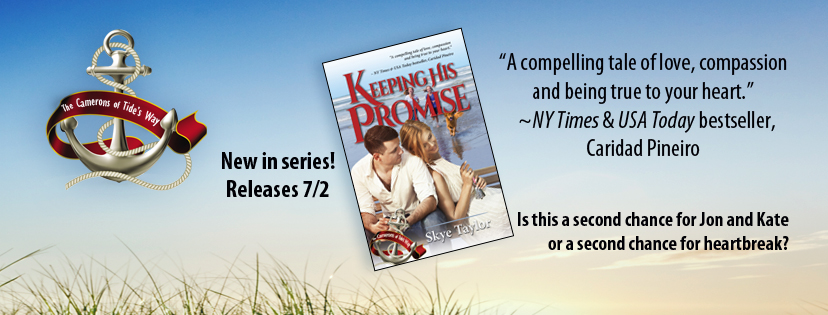
For my readers who've been eagerly awaiting the next in the Camerons of Tide's Way series - your wait is over. Kate's story is about to begin, and we are treated to another visit to Tide's Way.
@
 It begins with a new character we haven't met before, but he's been a part of Kate's life since she was a little girl. Now, Jon Canfield is a police officer on the small Tide's Way police force and hoping to become its chief when the current man retires at the end of the year. Jon has always had a thing for Kate, but before he found his teenage courage to do anything about it, he introduced her to his school friend Ethan Shaw and had to stand by and watch her fall head over heels in love with the other boy. As soon as Jon graduated high school, he joined the Marines thinking to put time and distance between himself and the woman he couldn't have, but eventually he returned to Tide's Way and joined its small police force. He bought an old fixer-upper, a stately older home that stood on a hill with a view of the ocean just a short way from the development where Ethan and Kate were now raising their two daughters. He's always been Kate's best friend and if that's all he can have, that's better than nothing. Then Ethan is killed by a drunk driver, Jon had turned on his lights to pull over. With his last breath, Ethan begs Jon to take care of "his girls." Blaming himself for the handling of the traffic stop and the awful results, Jon does his best to keep that promise without taking advantage and without letting his heart show while Kate grieves and moves on with her life. It begins with a new character we haven't met before, but he's been a part of Kate's life since she was a little girl. Now, Jon Canfield is a police officer on the small Tide's Way police force and hoping to become its chief when the current man retires at the end of the year. Jon has always had a thing for Kate, but before he found his teenage courage to do anything about it, he introduced her to his school friend Ethan Shaw and had to stand by and watch her fall head over heels in love with the other boy. As soon as Jon graduated high school, he joined the Marines thinking to put time and distance between himself and the woman he couldn't have, but eventually he returned to Tide's Way and joined its small police force. He bought an old fixer-upper, a stately older home that stood on a hill with a view of the ocean just a short way from the development where Ethan and Kate were now raising their two daughters. He's always been Kate's best friend and if that's all he can have, that's better than nothing. Then Ethan is killed by a drunk driver, Jon had turned on his lights to pull over. With his last breath, Ethan begs Jon to take care of "his girls." Blaming himself for the handling of the traffic stop and the awful results, Jon does his best to keep that promise without taking advantage and without letting his heart show while Kate grieves and moves on with her life.
@
 Kate followed Ethan to New York City to college and while there fell in love with journalism. While still in school she interned with a well knowns New York newspaper, and landed a entry level job there when she graduated while Ethan went on to Law School, which he hated but was doing because his father dreamed of adding "& Son" to sign over his law office door. But when Ethan's dad died freeing him from that commitment, he pursued his own dream in the area of culinary arts. When Kate's first pregnancy was difficult almost ending in her death in childbirth, Ethan was convinced that the hustle and stress of New York City was partly to blame and he brought her home to Tide's Way where he bought an old run-down restaurant and turned it into one of the town's best places to get ribs. Kate's second baby was born without complications and Ethan was sure that living in Tide's Way was the reason, so he was appalled when Kate wanted to move back to the city to pursue her career in journalism. It would mean giving up his restaurant and coping with city life - something he didn't want for himself or his young daughters. They rarely argued, but this issue sent Ethan storming from the house to cool off, but before he could return to apologize he was struck down by a drunk driver leaving Kate with a mountain of guilt, a restaurant to manage and two young girls to raise on her own. Kate followed Ethan to New York City to college and while there fell in love with journalism. While still in school she interned with a well knowns New York newspaper, and landed a entry level job there when she graduated while Ethan went on to Law School, which he hated but was doing because his father dreamed of adding "& Son" to sign over his law office door. But when Ethan's dad died freeing him from that commitment, he pursued his own dream in the area of culinary arts. When Kate's first pregnancy was difficult almost ending in her death in childbirth, Ethan was convinced that the hustle and stress of New York City was partly to blame and he brought her home to Tide's Way where he bought an old run-down restaurant and turned it into one of the town's best places to get ribs. Kate's second baby was born without complications and Ethan was sure that living in Tide's Way was the reason, so he was appalled when Kate wanted to move back to the city to pursue her career in journalism. It would mean giving up his restaurant and coping with city life - something he didn't want for himself or his young daughters. They rarely argued, but this issue sent Ethan storming from the house to cool off, but before he could return to apologize he was struck down by a drunk driver leaving Kate with a mountain of guilt, a restaurant to manage and two young girls to raise on her own.
@
 Kate landed a job with a paper in Wilmington and got on with her life. It wasn't New York City, but with Ethan gone and she being at least partly to blame, she remained in Tide's Way, learning how to be a single parent, manage Ethan's restaurant and hold down a job. Her best friend, Jon Canfield was always been there for her. He was her champion and protector when she tagged along with Jon and her brothers as a child, he introduced her to Ethan and took leave from the Marines to be at her wedding. And now he's doing his best to fulfill the promise Ethan forced him to make, watching the girls when Kate's responsibilities took her away from home, being a shoulder to lean on when grief seemed unbearable and a sounding board when she wasn't sure what she should do when decisions got tough. Kate landed a job with a paper in Wilmington and got on with her life. It wasn't New York City, but with Ethan gone and she being at least partly to blame, she remained in Tide's Way, learning how to be a single parent, manage Ethan's restaurant and hold down a job. Her best friend, Jon Canfield was always been there for her. He was her champion and protector when she tagged along with Jon and her brothers as a child, he introduced her to Ethan and took leave from the Marines to be at her wedding. And now he's doing his best to fulfill the promise Ethan forced him to make, watching the girls when Kate's responsibilities took her away from home, being a shoulder to lean on when grief seemed unbearable and a sounding board when she wasn't sure what she should do when decisions got tough.
@
 Then a freak storm sends Kate and her girls next door to Jon's for shelter when a huge tree comes down on their house requiring major repairs before they can return home. Kate begins to feel things for Jon she can't explain and he's finding it harder and harder to hide his own feelings. But standing between them and any kind of happy resolution is their individual guilt over Ethan's death and a totally divided opinion on the idea of creating a second chance home in their small town for non-violent ex-cons. Jon's a cop and he knows the rates of recidivism when young men who got on the wrong side of the law don't find help, employment or support when they try to turn their lives around. Kate is firmly in the "Not-in-my-Backyard" camp. How can they be fighting over this? Kate is appalled to discover Jon isn't supporting her view on this important issue. He's always been on her side of things -- until now! Then a freak storm sends Kate and her girls next door to Jon's for shelter when a huge tree comes down on their house requiring major repairs before they can return home. Kate begins to feel things for Jon she can't explain and he's finding it harder and harder to hide his own feelings. But standing between them and any kind of happy resolution is their individual guilt over Ethan's death and a totally divided opinion on the idea of creating a second chance home in their small town for non-violent ex-cons. Jon's a cop and he knows the rates of recidivism when young men who got on the wrong side of the law don't find help, employment or support when they try to turn their lives around. Kate is firmly in the "Not-in-my-Backyard" camp. How can they be fighting over this? Kate is appalled to discover Jon isn't supporting her view on this important issue. He's always been on her side of things -- until now!
@
 So, come on over to Tide's Way and settle in to see how Jon and Kate deal with the twists their lives have taken. If you've read the earlier books in the series you'll enjoy seeing Jake in action repairing Kate's house, Brianna and Zoe deep into the Save Jolee project and definitely with Kate on the second chance house issue, and Philip, retired from the Marines and loving his life and wife with a new baby in his arms and another on the way. You'll visit Sandy and Cam Cameron's beach house and sit down to dinner with the whole family. The Camerons are a big family with a lot of love to share, and they'd love to have you stop by. So, come on over to Tide's Way and settle in to see how Jon and Kate deal with the twists their lives have taken. If you've read the earlier books in the series you'll enjoy seeing Jake in action repairing Kate's house, Brianna and Zoe deep into the Save Jolee project and definitely with Kate on the second chance house issue, and Philip, retired from the Marines and loving his life and wife with a new baby in his arms and another on the way. You'll visit Sandy and Cam Cameron's beach house and sit down to dinner with the whole family. The Camerons are a big family with a lot of love to share, and they'd love to have you stop by.
   
Saturday, June 23 2018
 This month our Round Robin Blog questions is: Why do you write or feel compelled to write even through the difficult parts? This month our Round Robin Blog questions is: Why do you write or feel compelled to write even through the difficult parts?
*
Before I begin to write any book, I do a lot of character development and research. Ideas come to me from all over the place and I try to capture the essence of those ideas and save them to a file on my computer so the  thoughts don’t get lost. Then when the previous book is released and I’m on to the next adventure, I look at that idea file and whichever one grabs me as the most urgent, the one I want to follow, that’s where I start. But often, actually, for me there is always some research to do first. If it’s a historical, then I need to research the history, the speech patterns, the clothing and social mores. But even if it’s contemporary, I have to decide where it’s set – a real place, or one I’m going to make up? Where is it and what is that place like? City or small town? Seaside or mountains? Once I know that there is more research. Visiting the location if not a real town helps. Taking lots of photos, or cruising the internet, getting a “feel” for this setting. thoughts don’t get lost. Then when the previous book is released and I’m on to the next adventure, I look at that idea file and whichever one grabs me as the most urgent, the one I want to follow, that’s where I start. But often, actually, for me there is always some research to do first. If it’s a historical, then I need to research the history, the speech patterns, the clothing and social mores. But even if it’s contemporary, I have to decide where it’s set – a real place, or one I’m going to make up? Where is it and what is that place like? City or small town? Seaside or mountains? Once I know that there is more research. Visiting the location if not a real town helps. Taking lots of photos, or cruising the internet, getting a “feel” for this setting.
*
 Next step is developing my characters. Along with my original idea I usually have some thoughts about my protagonists, some of them sharp and clear, others not so clear. And secondary characters are very vague. I spend a lot of time on this process because my stories are more character driven than plot driven and I need to know them all very well to know what choices they will make when I start throwing problems at them. If they have families, I need to flesh those out as well. All your characters need lives and careers and unless they all have the same career as you or someone close to you, more research happens to flesh this part of their lives out. I need to know, for instance, if they have a job that might put them “on call” from time to time. This detail might actually become a plot point – you never know. Are they parents? What are those relationships like? So I develop a detailed backstory for all my main characters and a somewhat less detailed one for secondary characters. Next step is developing my characters. Along with my original idea I usually have some thoughts about my protagonists, some of them sharp and clear, others not so clear. And secondary characters are very vague. I spend a lot of time on this process because my stories are more character driven than plot driven and I need to know them all very well to know what choices they will make when I start throwing problems at them. If they have families, I need to flesh those out as well. All your characters need lives and careers and unless they all have the same career as you or someone close to you, more research happens to flesh this part of their lives out. I need to know, for instance, if they have a job that might put them “on call” from time to time. This detail might actually become a plot point – you never know. Are they parents? What are those relationships like? So I develop a detailed backstory for all my main characters and a somewhat less detailed one for secondary characters.
*
 When I wrote a hero who was a Marine, I didn’t attend boot camp, but I did have two Marines who were gracious in sharing all sorts of interesting information with me and answering endless questions. My brother, who served in Vietnam, generously recalled some of his experiences in that war, how they influenced his life and what it’s been like since for me when I was creating the back story for my hero in The Candidate. In my current project which is a mystery, my When I wrote a hero who was a Marine, I didn’t attend boot camp, but I did have two Marines who were gracious in sharing all sorts of interesting information with me and answering endless questions. My brother, who served in Vietnam, generously recalled some of his experiences in that war, how they influenced his life and what it’s been like since for me when I was creating the back story for my hero in The Candidate. In my current project which is a mystery, my  protagonist is a female deputy sheriff detective. I’ve done a lot of things in my life, but law enforcement has not been among them. It was quite an adventure going for a ride along with a real deputy sheriff. I learned a lot and even picked up some ideas for conflict in my story. My next adventure in research is to attend the 12-week Citizen’s Law Enforcement Academy. No, it won’t qualify me for a job, buy it will give me a very good idea of the life my heroine lives every day. protagonist is a female deputy sheriff detective. I’ve done a lot of things in my life, but law enforcement has not been among them. It was quite an adventure going for a ride along with a real deputy sheriff. I learned a lot and even picked up some ideas for conflict in my story. My next adventure in research is to attend the 12-week Citizen’s Law Enforcement Academy. No, it won’t qualify me for a job, buy it will give me a very good idea of the life my heroine lives every day.
*
Then the writing begins. Usually taking off with a lot of enthusiasm and energy. After all, I’ve spent so much time with these  people I’ve created, I’m eager to find out how they are going to make out. How their lives are going to change. And all the adventures along the way. people I’ve created, I’m eager to find out how they are going to make out. How their lives are going to change. And all the adventures along the way.
*
But then you come to the difficult parts. Perhaps you’ve hit a sagging middle and don’t’ know quite how to fix it. Or you’ve written your characters into a corner you haven’t figured out how to get them out of. Now the story feels more like a 10-mile forced march with an 80 pound rucksac full of gear than the eagerly anticipated adventure it was on page one. So, Why do I write or feel compelled to write even through the difficult parts?
*
 The answer is simple. I put these characters I’ve grown to care very much about into this situation and it’s up to me to get them out. I want that satisfying ending just as much as I hope my readers do. Besides, I’ve done a ton of work getting to this point and there’s something in me that refuses to abandon the project just because it got hard. The answer is simple. I put these characters I’ve grown to care very much about into this situation and it’s up to me to get them out. I want that satisfying ending just as much as I hope my readers do. Besides, I’ve done a ton of work getting to this point and there’s something in me that refuses to abandon the project just because it got hard.
*
Why do all these other great authors keep on when the keeping on gets tough?
Hop on over to their sites and find out…
Dr. Bob Rich
Marie Laval
Connie Vines
Beverley Bateman
Marci Baun
A.J. Maguire
Helena Fairfax
Anne Stenhouse
Diane Bator
Fiona McGier
Margaret Fieland
Rhobin L Courtright
Saturday, June 09 2018
 My dad was a mechanical engineer so perhaps that’s where he came by his ability to make things happen on his own when everyone else would have enlisted the help of half a dozen friends and a cooler full of beer. Over his lifetime he’d accumulated a metal and woodworking shop in his basement that could have rivaled any professional business and he’d managed to get all these pieces of heavy equipment into that basement with the use of pulleys, dollies, wedges and any other tool designed to gain mechanical advantage over heavy, unweildy machines. So maybe that’s where I got the idea that I could do anything if only I put my mind to it. My dad was a mechanical engineer so perhaps that’s where he came by his ability to make things happen on his own when everyone else would have enlisted the help of half a dozen friends and a cooler full of beer. Over his lifetime he’d accumulated a metal and woodworking shop in his basement that could have rivaled any professional business and he’d managed to get all these pieces of heavy equipment into that basement with the use of pulleys, dollies, wedges and any other tool designed to gain mechanical advantage over heavy, unweildy machines. So maybe that’s where I got the idea that I could do anything if only I put my mind to it.
*
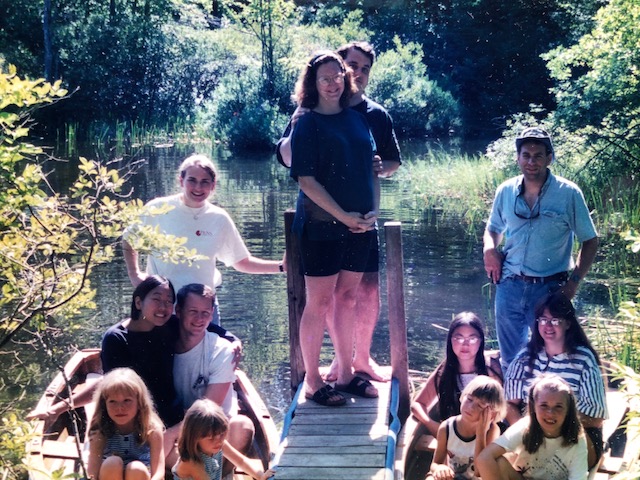 I had plenty of encouragement growing up, as you can imagine. I was also a first born and a bit stubborn so I was pretty sure I could pull it off, whatever the task was that I had in mind, even when the odds and opinion were against me. And for most of my life I fared pretty well. In spite of being married twice, I more or less raised four kids on my own and they all turned out to be well-adjusted, smart, loving and responsible adults. When my husband was wasting away from cancer, I painted our entire three story house I had plenty of encouragement growing up, as you can imagine. I was also a first born and a bit stubborn so I was pretty sure I could pull it off, whatever the task was that I had in mind, even when the odds and opinion were against me. And for most of my life I fared pretty well. In spite of being married twice, I more or less raised four kids on my own and they all turned out to be well-adjusted, smart, loving and responsible adults. When my husband was wasting away from cancer, I painted our entire three story house  by myself when I discovered my son was getting off the bus down the street so his friends wouldn’t see the ugly, peeling house he called home. I ran conferences and state gymnastic meets. I chaired committees and managed a church thrift shop. I figured out how to organize the office of an adoption and fostering agency that dealt with the regulations and laws in six states, and kept up with meeting all those requirements for the social workers. I’ve jumped out of perfectly good airplanes and earned my basic skydiver’s license. And I joined the Peace Corps at 56, stepping way out of my comfort zone to live and work in a very different culture on the other side of the world. My can-do attitude served me well. by myself when I discovered my son was getting off the bus down the street so his friends wouldn’t see the ugly, peeling house he called home. I ran conferences and state gymnastic meets. I chaired committees and managed a church thrift shop. I figured out how to organize the office of an adoption and fostering agency that dealt with the regulations and laws in six states, and kept up with meeting all those requirements for the social workers. I’ve jumped out of perfectly good airplanes and earned my basic skydiver’s license. And I joined the Peace Corps at 56, stepping way out of my comfort zone to live and work in a very different culture on the other side of the world. My can-do attitude served me well.
*
Until the advent of technology!
*
Becoming computer literate before Windows was a challenge but I rose to it. I managed to create my own website, through a lot of trial and error. I’ve more or less mastered the use of my smart phone which I freely admit is smarter than I am, and now I have a car with so much technology going on it will probably take me the entire three years of the lease to learn how to use it all.

Then I decided to self publish my next book. How hard can it be? Everyone else is doing it, and they all said it was a piece of cake. I knew enough to hire a professional editor and I found an equally talented lady do design my cover, but the rest was going to be up to me and CreateSpace. A friend, who assured me I could do this – after all, I’d jumped out of airplanes, surely I could master this, as well, or so she claimed - directed me to a slender little book titled, How to Format Your Novel for CreateSpace, by Roxanne Smolen. The book is tiny. 38 pages tiny. I skimmed through it and tackled the job.
*
It’s amazing how many things in the menu of my WORD program did not look like the screen shots in this book. It’s equally amazing how many terms I had absolutely NO clue about the meaning or where to find them. And humbling to discover I was not going to pull this off with my usual plucky attitude. I followed every direction down to the letter, but somehow the headers and footers were switching places on me when I was doing something else. I’d fix those and the  page numbers would disappear or appear in the wrong place. Change something half way through the book in a totally different section and guess what? Something changed in the front matter. After deciding my readers were never going to notice the few odd headers, I gave up and uploaded it to CreateSpace. 24 hours later I got the notice advising me there was a problem with pagination that I needed to fix. I spent and entire weekend fixing those numbers and finally, FINALLY, on Monday night I had a file with all the page numbers right and all the headers correct. I thankfully uploaded the new file, was presented with a review option and discovered to my dismay that somehow between my computer and CreateSpace’s program a dozen blank pages had appeared. They were NOT in the document I’d uploaded and even turning on the feature that page numbers would disappear or appear in the wrong place. Change something half way through the book in a totally different section and guess what? Something changed in the front matter. After deciding my readers were never going to notice the few odd headers, I gave up and uploaded it to CreateSpace. 24 hours later I got the notice advising me there was a problem with pagination that I needed to fix. I spent and entire weekend fixing those numbers and finally, FINALLY, on Monday night I had a file with all the page numbers right and all the headers correct. I thankfully uploaded the new file, was presented with a review option and discovered to my dismay that somehow between my computer and CreateSpace’s program a dozen blank pages had appeared. They were NOT in the document I’d uploaded and even turning on the feature that 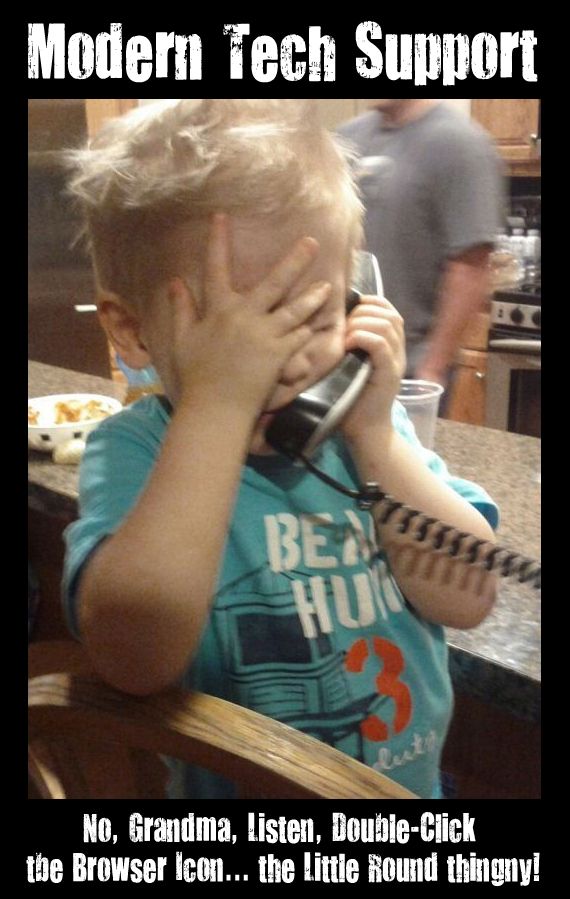 lets me see all my non-visual key strokes didn’t help. I was close to throwing the whole thing into the sea in frustration. Nothing in my life had prepared me for the fact that I can’t do everything just because I believe I can and want it bad enough. lets me see all my non-visual key strokes didn’t help. I was close to throwing the whole thing into the sea in frustration. Nothing in my life had prepared me for the fact that I can’t do everything just because I believe I can and want it bad enough.
*
Thankfully there are people out there who are steeped in this stuff and my friend who originally assured me I could do this myself dug out the business card of another lady she’d met somewhere who does formatting. I have NO idea what that lady did, but in a matter of minutes she had returned my manuscript to me, “fixed.” It looked the same to me, but I uploaded it anyway and the following day I was told it was approved. YAY! So, I am happy, but humbled. Maybe the next book will go smoother. Or then again, maybe not. At least I know who to ask when I finally admit I can’t do it all.
*
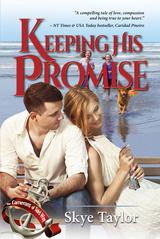 Look for KEEPING HIS PROMISE – Available now on all e-book platforms and in print. Look for KEEPING HIS PROMISE – Available now on all e-book platforms and in print.
    PRINT PRINT
Friday, May 25 2018
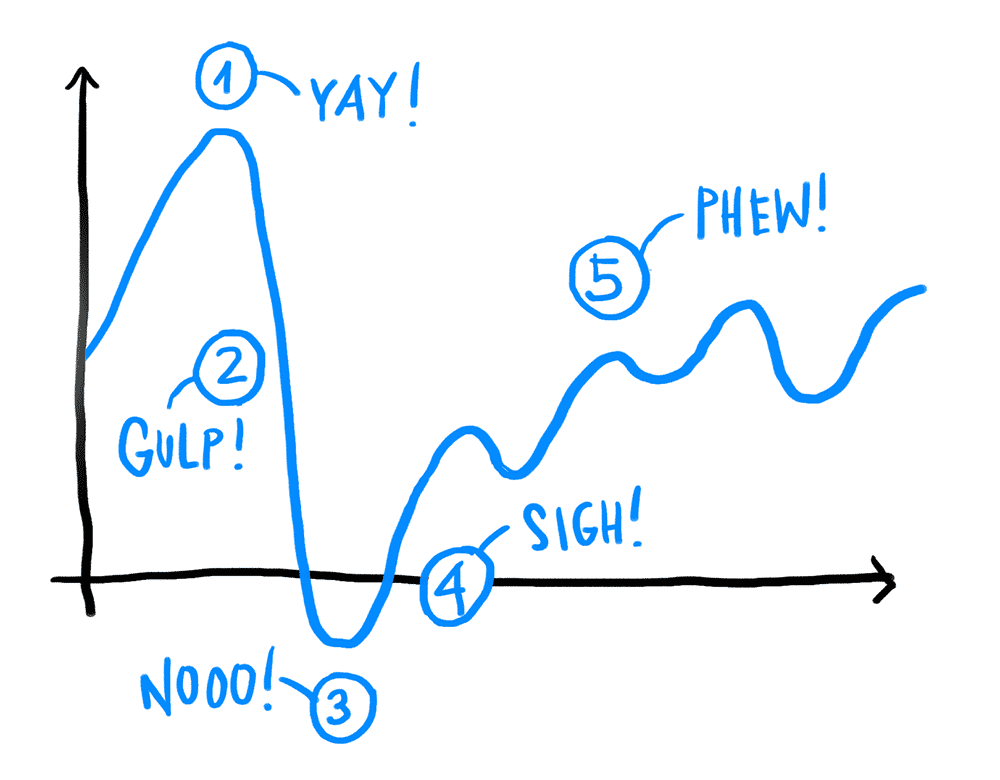 At least, that's what I keep telling myself. At least, that's what I keep telling myself.
After spending the better part of a year filled with family issues writing book five in my series, requested by my editor and then having her retire and the book turned down, I decided it was going to get published, even if I had to do it myself. So many authors are doing it, both new authors and some who've been traditionally published and on the best seller lists for years. So, why not me?
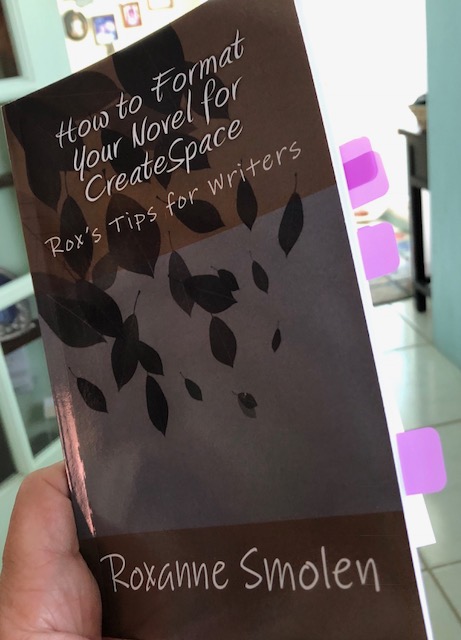 Following all the best advice, I paid for professional editing, and for the cover. I was fortunate with both these ladies as they did a bang-up job. A dear friend who happens to do content editing and publishing in her small one-woman operation assured me I could do the formatting and recommended a book which I promptly bought. It's a slim volume and very straight forward. How hard can this be? Following all the best advice, I paid for professional editing, and for the cover. I was fortunate with both these ladies as they did a bang-up job. A dear friend who happens to do content editing and publishing in her small one-woman operation assured me I could do the formatting and recommended a book which I promptly bought. It's a slim volume and very straight forward. How hard can this be?
Well, as it turns out . . . harder than you'd think. To start with, I'm a Mac user so  anyone I can consult for advice is usually using a different version of Word. Then there's the issue of me being technically challenged. I keep reminding myself that I managed, through trial and error to build my own website in spite of this personal failing. And I persevered. I'm still persevering. And I anyone I can consult for advice is usually using a different version of Word. Then there's the issue of me being technically challenged. I keep reminding myself that I managed, through trial and error to build my own website in spite of this personal failing. And I persevered. I'm still persevering. And I  will continue to persevere until Keeping His Promise is out and my readers who've waited far too long already for Kate's story to appear can dive in and find out what happens to the last of the Cameron kids from Tide's Way. So bear with me. I'm shooting for June 22nd. will continue to persevere until Keeping His Promise is out and my readers who've waited far too long already for Kate's story to appear can dive in and find out what happens to the last of the Cameron kids from Tide's Way. So bear with me. I'm shooting for June 22nd.
In the meantime, have a wonderful Memorial Day Weekend. Even if you don't attend any parades or visit any gravesites, take a moment to thank, in your heart, those who've sacrificed everything to protect the freedoms we all enjoy every day. Take a moment to honor them and contemplate the enormity of that sacrifice. Remember that from the days of the Revolutionary War to today in far flung places in the world, these men and women have put on the uniform of our country and gone out to do battle for an ideal and not come home to their own families. They leave behind grief stricken parents, heartbroken spouses and kids who will grow up without the love, guidance and support of their mother or father. All so you can enjoy all that America represents.

|